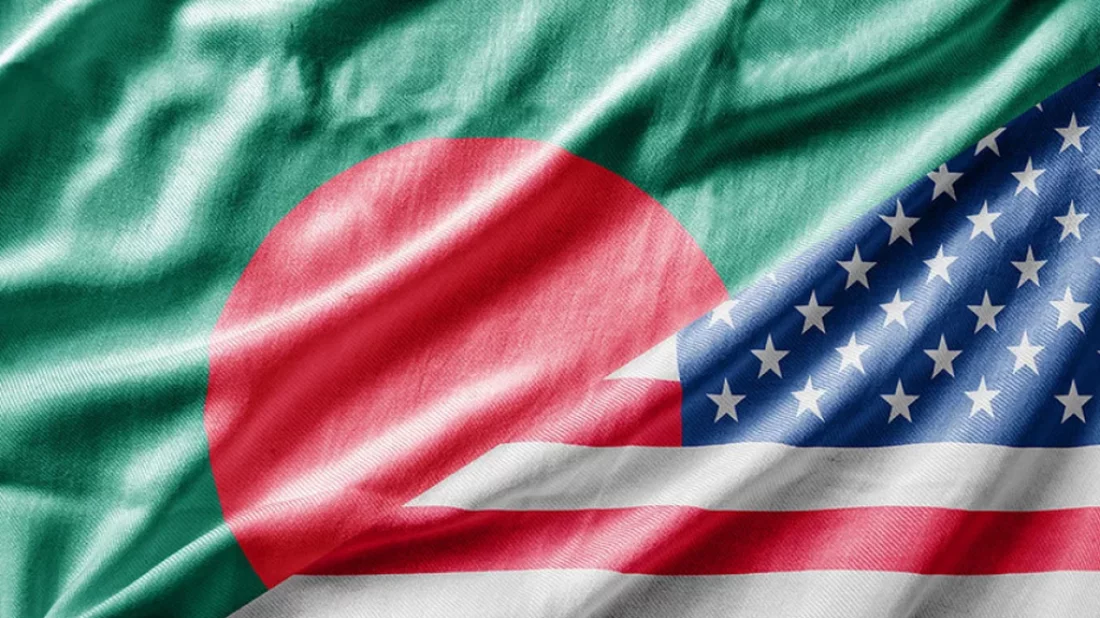The Washington-based South Asia expert Michael Kugelman has noted “striking” changes in the tone of US-Bangladesh relations after the January 7 elections and said the bilateral mood has gone from a “bitter feud to a love fest”.
“It appears that both Dhaka and Washington have decided to bury the hatchet after the election-related tensions and aim for a reset in relations,” Kugelman told Dhaka Tribune in an interview following the visit of a US delegation comprising representatives from the White House, USAID and the State Department.
“The catchphrases of the moment are ‘next phase’ and ‘new chapter.’ The changes in tone and messaging over just the last few weeks are striking: A lot of conciliatory and warm language, and no public criticism. The bilateral mood has gone from a bitter feud to a love fest,” he said.
Kugelman is Director of the South Asia Institute at the Wilson Center. He is a leading specialist on US relations with South Asian countries. He is also the writer of Foreign Policy’s weekly South Asia Brief.
US-Bangladesh relations have been widely discussed because of Washington’s interest in the general election. Before the elections, Washington announced a visa policy to restrict the entry of individuals standing in the way of free and fair elections being held.
The ruling Awami League accused the US of taking sides with the opposition BNP. China and Russia issued several statements citing Washington’s interference in Bangladesh’s internal matters.
The BNP boycotted the election. After January 7, the State Department said it had not found the polling to be free and fair, triggering speculations that the relations will deteriorate further.
But President Joe Biden in a letter to Prime Minister Sheikh Hasina expressed his willingness to work with the Prime Minister to achieve Bangladesh’s economic goals. He also expressed keenness to partner with Bangladesh on a shared vision for a free and open Indo-Pacific.
Subsequent to the letter, Eileen Laubacher, special assistant to the president and senior director for South Asia at the US National Security Council (NSC); Michael Schiffer, USAID Asia Bureau assistant administrator; and Afreen Akhter, State Department deputy assistant secretary for South and Central Asia, visited Bangladesh from February 24-26.
They met Foreign Minister Dr Hasan Mahmud, Minister for Environment and Climate Change Saber Hossain Chowdhury, and Prime Minister’s adviser for private sector Salman F Rahman. They also had dinner at the adviser’s residence.
The team also met opposition BNP leaders, including its secretary general Mirza Fakhrul Islam Alamgir, and a select group of members of civil society.
The BNP leaders did not make any public comment after the meeting.
The foreign minister, however, said the US has expressed its willingness to work with Bangladesh to create a new chapter in their relations.
“There is willingness from both sides. Together we want to create a new chapter in our relations,” he said.
Salman F Rahman said the “election is now a thing of the past. They did not say anything about it and neither did we. It was rather how to deepen relations between the two countries in the coming days that was discussed.”
The US embassy, after the meeting with the foreign minister, said the United States “supports a prosperous, secure, and democratic Bangladesh. We discussed with the foreign minister how our two countries can work on mutual interests, including economic development, security, refugees, climate, labour and trade.”
“My sense is the US concluded that its strategic interests weren’t well served with the overt rights and democracy promotion approach,” Michael Kugelman told Dhaka Tribune.
“The constant pressure on Dhaka was emboldening Washington’s Chinese and Russian rivals, giving them a pretext to accuse the US of meddling in Bangladesh’s internal politics. And that pressure was also upsetting India, America’s top partner in South Asia. The strategic calculus just wasn’t working for Washington,” he said.
When asked if something new was going to happen in the bilateral relationship, keeping aside election issues, Kugelman replied: “There is an interesting lesson in all this. For all the focus on bilateral tensions related to US pressure on rights and democracy, the US-Bangladesh relationship has actually been trending quite positively in recent years.
“There have been surges in cooperation around economic, strategic, defense, health, and humanitarian issues. But tensions over rights and democracy had become a distraction that made it easy to forget about an improving relationship.
“With that tension point now apparently out of the picture, it will be easier to observe just how well situated the partnership is now,” he said.
He, however, said this is not to say there would not be more tension points.
“US officials are still meeting with BNP leaders and bringing attention to repression and the struggles of civil society, albeit in a more subdued manner than in previous months.
“But it’s clear the two sides are keen to make this relationship work, and from the US perspective that entails walking back its criticism of Dhaka’s record on democracy.
“That may upset BNP supporters and democracy advocates. But then again, interests tend to prevail over moral considerations in international relations, don’t they?” he said.

